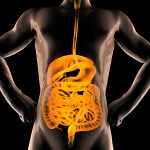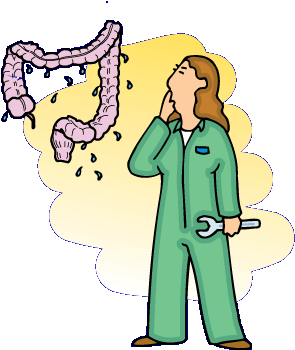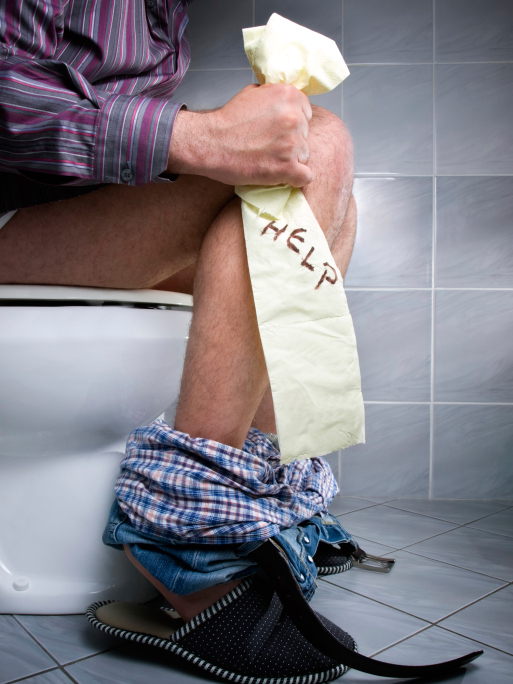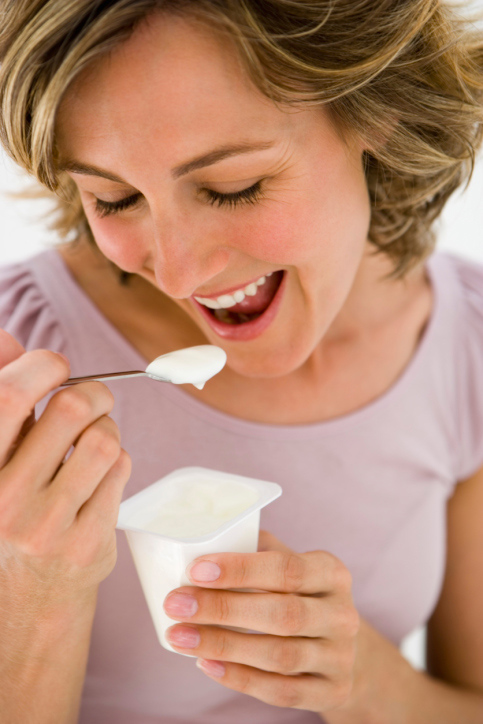Stay Informed
Popular Articles
- Hiatal Hernia: Hidden Cause of Chronic Illness
- Small Intestinal Bacterial Overgrowth (SIBO)
- Applied Lymphology: Unlocking the Secret to Pain Relief
- An Introduction to Constitutional Iridology
- The Low Down on Liver Detoxification
- An Energetic and Emotional Approach to Cancer
- Fat Facts
- Marrow in the Bones
- Blood Type and Nutrition
- Cardiac Herbs: Beyond Hawthorn
Quick Search
The School of Modern Herbal Medicine




Do Your Intestines Leak?
- 2/24/2014
- Categorized in: Specific Health Problems

Colon cleansing is a very popular therapy among people involved in natural health care, but this article isn't about colon cleansing. Not that I'm opposed to colon cleansing, mind you, but “cleansing” the colon isn't all one needs to do to have a healthy gastrointestinal tract. One also has to reduce intestinal inflammation and repair the integrity of the intestinal membranes. This therapy could be called intestinal “toning.”
Colon cleansing has always made sense to me and made even more sense after I became a parent and had to change baby's diapers. If you've ever noticed what happens to a baby's bottom if you don't change the diaper quickly enough, you'll understand what I'm talking about. The waste material from the colon will turn that nice pink bottom lobster red if it sits there long enough.
The redness, of course, is inflammation. All tissues respond to damage through the process of inflammation. It's part of our immune system. So, if the material from the colon will inflame the skin if left there too long, don't you think it will do the same thing to the inside of the colon if left there too long?
It's a pretty common-sense conclusion that if we aren't eliminating waste rapidly enough, it's going to continually irritate and inflame the intestines. Of course, some people have so much “schooling” that they don't believe in common sense anymore, such as the doctors who tell people that a bowel movement once per week is OK. Fortunately, many herbalists I know understand that improving colon transit time so that toxins and irritants are removed from the GI tract in a more timely manner is a good thing to do. This helps explain why stimulant laxatives have been top selling herbs for a long time.
A cleanse will get that irritating waste material moving through quicker, so it will cause less irritation. But, that's just like being more careful to change the baby's diaper faster. If the babies bottom is red, you'd put something on it to soothe it, wouldn't you? We need to do a similar thing when working with the intestines. We need to reduce the inflammation and promote healing, which is the focus of this article.
Healing the Colon
Fiber and water will decrease colon transit time and at the same time have the added benefit of binding toxins in the gut to reduce inflammation and prevent damage to intestinal mucosa. In fact, the most important thing that most people can do to improve the health of their colon is to increase fiber and water intake. It is also important to remove parasites, yeast and other harmful microbes from the intestines and create a healthy balance of friendly bacteria using probiotic supplements like acidophilus and bifidophilus.
In Chinese medicine, the intestines are called the “sifters and sorters.” Their job is to selectively absorb nutrients that the body needs, and to reject materials that shouldn't be absorbed. Inflammation causes fluid and protein to seep into tissue spaces, creating swelling of the tissues. In the intestines, this makes them more porous, and over time, causes them to lose structural integrity or tone.
When they are inflamed, the intestines do not absorb nutrients correctly, which can cause fatigue and nutritional deficiencies. Leaking toxins also burden the liver, which acts as a second line of defense to eliminate substances absorbed from the intestines that the body doesn’t want in the general circulation.
When large, undigested food particles are absorbed because of the excessive porousness in the membranes, they trigger immune reactions. This can hypersensitize the immune system, resulting in allergic and autoimmune reactions. The inflammation also damages carrier proteins that help nutrients to be assimilated. This can cause nutritional deficiencies. Finally, the damaged intestinal membranes also allow bacteria, viruses and yeast to pass more readily into the system to damage other organs and systems.
All this means that a wide variety of health problems can arise from leaky gut, including:
Abdominal discomfort
ADHD
Allergies
Arthritis
Asthma
Autoimmune diseases
Bloating
Celiac disease
Chronic fatigue syndrome
Constipation
Depression
Dermatitis
Diarrhea
Eczema
Environmental illness
Fatigue
Fever
Fibromyalgia
Food allergies
Inflammatory bowel disease
Memory problems
Multiple chemical sensitivity
Pancreatic insufficiency
Psoriasis
Rashes
Sinus problems
Toxic feeling
Yeast infections
Seven Steps to a Healthier GI Tract
Reducing intestinal inflammation and rebuilding damaged intestinal membranes to stop gut leakage can help numerous health problems. Here are seven steps you can take to reduce intestinal inflammation, promote healing and stop intestinal leakage.
Step One is to avoid intestinal irritants, such as food allergens, food additives, drugs and chemicals. A great way to do this is by adopting a GAPS, Paleo or Specific Carbohydrate Diet. A Paleo diet may also help.
Step Two is to improve digestion and increase stomach acid by taking a betaine hydrochloric acid (HCl) supplement (and possibly a digestive enzyme supplement). You could also take a little raw apple cider vinegar at the beginning of a meal to increase stomach acid. Digestive Bitter Tonic Formulas can also be used to increase stomach acid. Take them about 15-20 minutes prior to meals with a large glass of water.
In modern diets, just about everything has been cooked, heated to high temperatures to sterilize it, and/or treated with preservatives (which often act as enzyme inhibitors). This results in a diet very low in both enzymes and probiotics. This is a big part of why our intestines aren't healthy.
Step Three is to eliminate harmful organisms from the digestive tract. If parasites or bacterial overgrowth is part of the problem, these harmful organisms need to be eliminated as part of the process. Fungal infections may occasionally be a problem as well.
 Step Four is to bind intestinal toxins and improve colon transit time. If small intestinal bacterial overgrowth (SIBO) isn’t a problem, consider taking a Fiber Blend Formula first thing in the morning before breakfast. Make sure to take it with plenty of water. If SIBO is a problem, fiber will not be helpful.
Step Four is to bind intestinal toxins and improve colon transit time. If small intestinal bacterial overgrowth (SIBO) isn’t a problem, consider taking a Fiber Blend Formula first thing in the morning before breakfast. Make sure to take it with plenty of water. If SIBO is a problem, fiber will not be helpful.
Colon transit time is the length of time it takes for material to travel from one end of the alimentary canal to the other. In a healthy colon, this should be about 18-24 hours. To test your own colon transit time, eat a food that “dyes” the stool (like beets or liquid chlorophyll) and see how long it takes for the color to show up in the stool being eliminated. If it takes more than a day, then you have a sluggish colon transit time.
Just drinking plenty of water and taking a Fiber Blend formula will usually improve colon transit time, but you may need magnesium, vitamin C or an herbal laxative. Try taking a Stimulant Laxative Formula for a short period of time (while taking the fiber) until your colon is moving more rapidly. Then switch to a Gentle Laxative Formula for maintenance. Stimulant Laxatives should not be used on a long term basis. If you find it difficult to have a bowel movement without stimulant laxatives and Gentle Laxative Formulas aren’t strong enough, then try taking high doses of vitamin C (3-5,000 mg per day) and magnesium (800-1200 mg per day). Vitamin C also helps tone the intestinal membrane and promote healing.
Step Five is to reduce intestinal inflammation. Up to this point, we’ve focused on helping to “clean out” the intestines. It’s also important to reduce the intestinal inflammation to promote tissue regeneration and repair. The following herbs are some of the best for reducing intestinal inflammation: aloe vera, cat’s claw, chamomile, licorice, wild yam and St. John’s wort, as all of these herbs are good at reducing the inflammation and promoting healing. My personal favorites are cat's claw, licorice, wild yam and aloe vera.
Step Six is to plug the “leaks,” meaning to restore the integrity of the intestinal membranes. This is our primary goal in the whole process, but in this step we focus on remedies that repair and rebuild the tissues. To achieve this we look to Intestinal Toners. Two of my favorite intestinal toners are Kudzu/St. John's wort and Intestinal Soothe and Build from Nature's Sunshine Products. The amino acid l-glutamine and vitamin C are helpful nutrients in promoting repair. There is considerable evidence that taking l-glutamine can aid the gut in its role of protecting against viral, bacterial and food-borne antigen invaders.
 Step Seven is to repopulate the colon with friendly bacteria or probiotics. One way to repopulate the colon with friendly bacteria is to eat fermented foods with live cultures, such as yoghurt or raw sauerkraut. According to Sally Fallon in Nourishing Traditions, nearly all traditional cultures used some kind of fermented foods in their diet. These foods and beverages (which include fermented vegetables like sauerkraut and kim chi, fermented dairy products like yogurt and kefir, and natural beers made from herbs) all contain both enzymes and lactobacteria. Another way is to take probiotic supplements.
Step Seven is to repopulate the colon with friendly bacteria or probiotics. One way to repopulate the colon with friendly bacteria is to eat fermented foods with live cultures, such as yoghurt or raw sauerkraut. According to Sally Fallon in Nourishing Traditions, nearly all traditional cultures used some kind of fermented foods in their diet. These foods and beverages (which include fermented vegetables like sauerkraut and kim chi, fermented dairy products like yogurt and kefir, and natural beers made from herbs) all contain both enzymes and lactobacteria. Another way is to take probiotic supplements.
Maintaining a healthy intestinal tract is very important to overall health. It is possible to fix the “leaks” in our intestinal plumbing, with a few supplements and some dietary improvements.
Suggested Further Reading
Colon Cleansing: The Best-Kept Secret by Jennifer Weiss and Vena Burnett, 1989
Diet and Nutrition: A Holistic Approach by Rudolph Ballentine, M.D.
Dr. Christopher's Three Day Cleansing Program and Mucousless Diet by John R. Christopher
Enzyme Nutrition by Edward Howell
Food Enzymes by Humbart Santillo
Food is Your Best Medicine by Henry Bieler
Foundations of Health: The Liver and Digestive Herbal by Christopher Hobbs
Natural Detoxification by Jacqueline Krohn, MD and Frances Taylor, MA
Natural Remedies for Common Ailments by Hugo Rodier
The Colon Health Handbook by Robert Gray
The New Detox Diet by Elson M. Haas, M.D.
